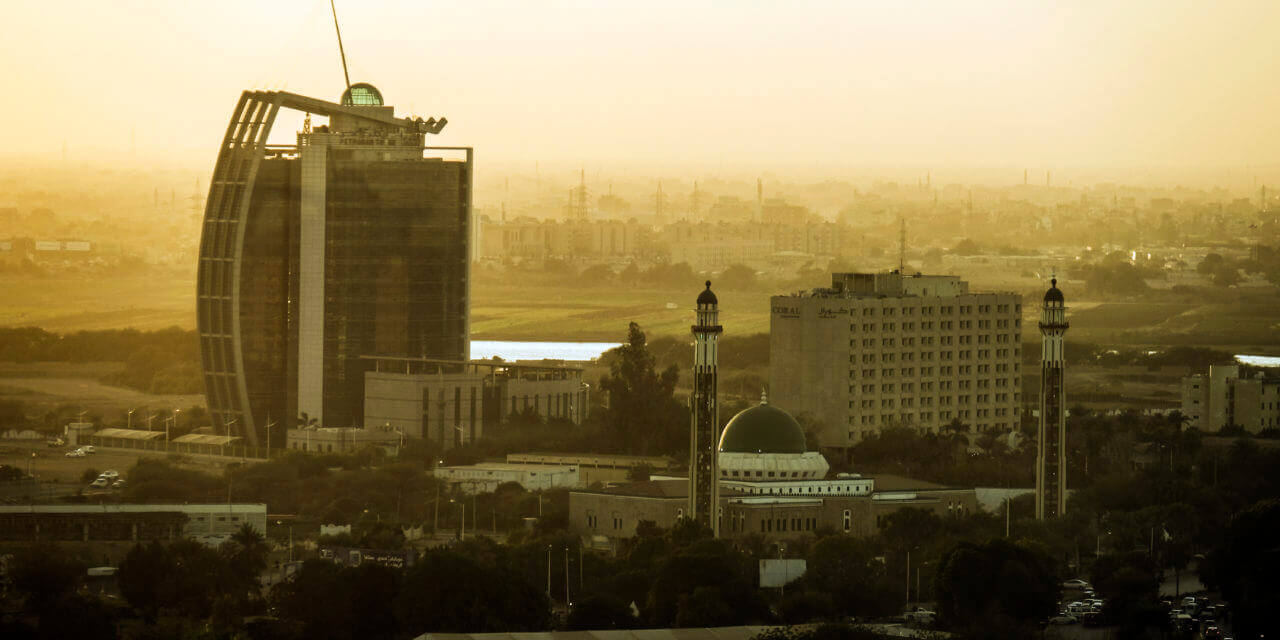Khartoum, Sudan. (cc) Christopher Michel
Sudan’s army quelled an armed mutiny over severance pay from within its ranks in the capital Khartoum.
On Tuesday, January 14, shooting broke out in the Riyadh suburb of Sudan’s capital Khartoum and the city’s airport was briefly closed amid the clashes.
Journalist Adel Kalar, witnessed the events unfolding in the Riyadh area. Kalar said that “members of the Operations Authority of the Intelligence Service organised a protest to demand post service-related rights after they had been dismissed. They rejected to join the Rapid Support Forces.”
Then, Kalar added, “Military Intelligence and Rapid Support Forces units launched an arrest campaign targeting members of the Operations Authority of the Intelligence Service”. The dismissed members violently resisted their arrest.
Two soldiers were killed, and four were injured during the clashes. Officials say 40 of the mutineers surrendered and intelligence chief Abu Bakr Mustafa handed in his resignation in the wake of the events.
According to the Central Committee of Sudanese Doctors, which is one of the founding bodies of the Sudanese Professionals Association, a 15-year-old citizen was also injured.
Sudan’s Deputy Chairman of the Sovereign Council and Rapid Support Forces (RSF) Commander, Lieutenant-General Mohamed Hamdan Dagalo (Hemeti), accused former intelligence chief Salah Gosh of orchestrating the revolt.
In a press conference held in Juba, the capital of South Sudan, Hemeti, stressed the importance of holding those responsible for the incident accountable.
Prime Minister Abdalla Hamdok said on his official Twitter account: “We want to assure the Sudanese people that the incidents which took place today are under control and they will not stop us and our mission nor will they be a reason for us to retreat from the goals of this revolution.”
He continued saying that “this situation stresses the need for the current partnership and the need to push it forward to achieve our higher goals. We reiterate our faith in the Sudanese armed forces and their ability to contain situations.”
With the fall of Sudan’s former and long-time President Omar al-Bashir in April 2019, people demanded the dismantling of the notorious National Intelligence and Security Service (NISS), for its brutal involvement in suppressing and killing protesters before the fall of the regime and for its inhumane practices in detention centres and prisons.
With the power-sharing agreement reached between the Forces of Freedom and Change alliance (FFC) and the Transitional Military Council (TMC) in August 2019, the constitutional document stressed the importance of restructuring the security apparatus and limiting its tasks and powers.
The first step was a name change to the General Intelligence Service (GIS). Based on the constitutional document, the authorities also started to dissolve the Operations Authority of the Intelligence Service, with mover 13,000 members.

